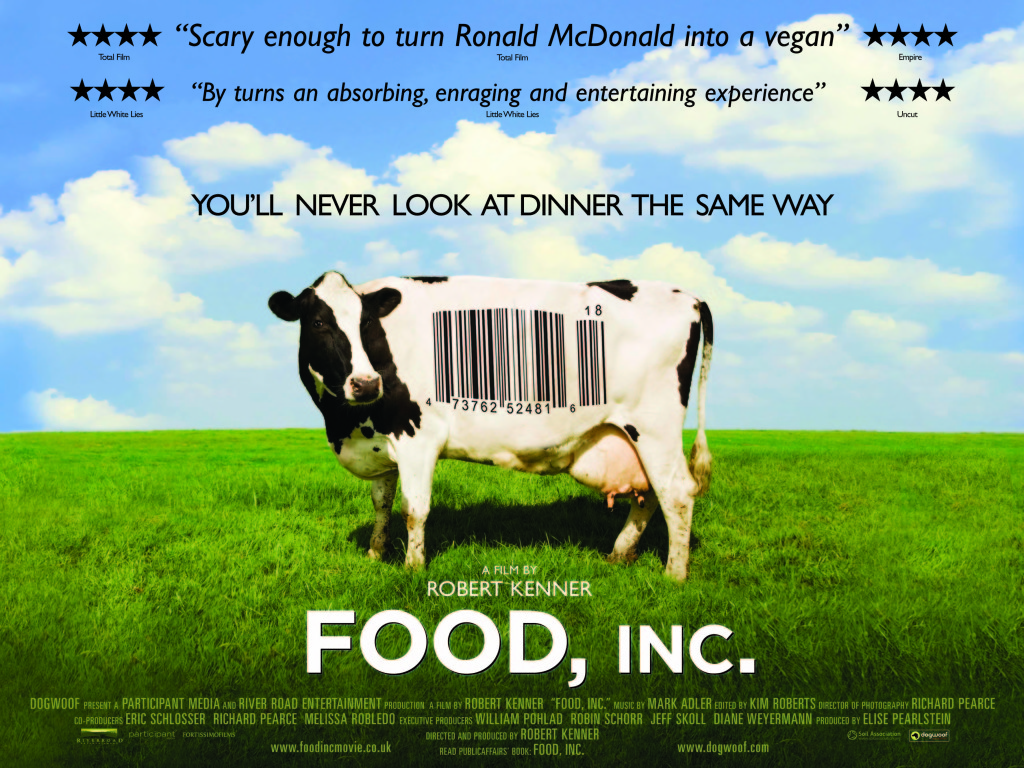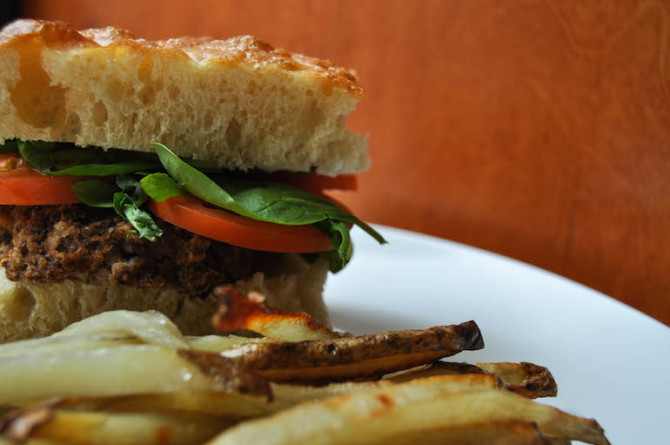Most people prefer to remain blissfully ignorant about where their food comes from, largely because they know the answer isn’t pleasant. But when we eat meat, we’re supporting the factory farming industry, which in turn supports the systematic destruction of our planet.
What is factory farming?
Okay, let’s back up. What exactly do I mean by “factory farming,” and how does it harm the environment?
Well, chances are you’ve seen a food documentary like Food Inc, Hungry for Change, or Fed Up (all available to stream on Netflix if you haven’t).

Photo courtesy of imdb.com
So you probably have an idea of how capitalistic and corrupt our food system is. If you don’t, go ahead and just skim this article about the economics of our food production.
Factory farming is when huge, corporate farm operations cram too many animals — more than 9 billion animals are raised and slaughtered for human consumption each year in just the U.S. alone — into cages that are too small and then don’t safely dispose of the massive amount of manure. I won’t go into all the gory details here, but these guys did.
Here’s the deal:
Factory farms cram a lot of animals into a small area. A lot of animals means a lot of manure — about a million tons per day — and a lot of methane (a very strong greenhouse gas).
Not-so-fun-fact: Factory farming makes up about 20 percent of greenhouse gas emissions.
The generated waste (which is about 3 times more than what humans in the U.S. produce each year) omits toxic gases and makes its way into the groundwater. This is a problem for people who live near or work at these factory farms — they breathe in dangerous (and potentially deadly) chemicals every day and drink contaminated ground water.
The air and water isn’t the only thing being destroyed — millions of acres of forests are plowed down to make room for grazing land and crops for all of these animals.
Since so many animals are all squished so close together, diseases spread quickly. To combat this, farms use massive amounts of antibiotics. This may not seem like a big deal, but the overuse of antibiotics (in food and in medicine) is leading to a growing problem of antibiotic resistant bacteria.
In a nutshell, factory farming threatens human health and our ability to live on this planet.
Don’t just take my word for it, check out these 11 Facts about Factory Farming and the Environment.
What can we do?
Here’s the good news — you can be a part of the solution. In addition to helping the environment, there are many health benefits of eating less meat. And, you don’t have to turn your life upside down to do it.

Photo by Megan Prendergast
If you simply must eat meat, try to be aware of where it’s coming from. Local, cage-free animals are better than factory farmed, antibiotic-filled livestock.



